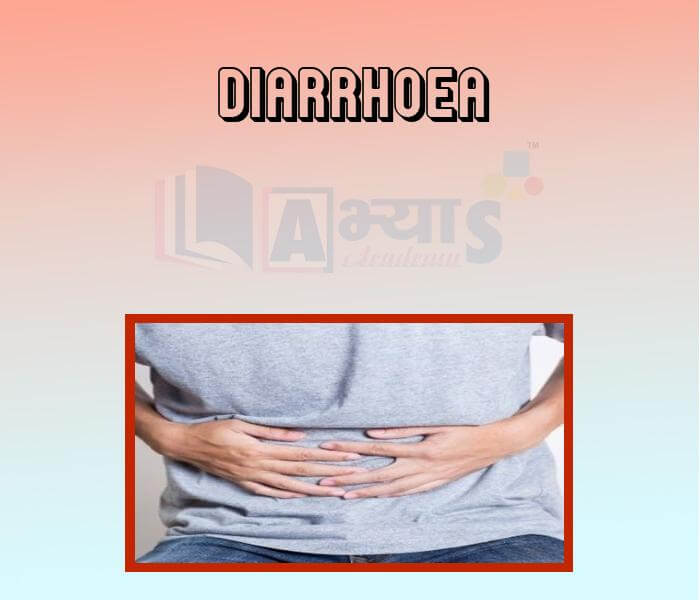Diarrhoea











Diarrhoea
Diarrhoea: The passing of loose stool at frequent intervals is called diarrhoea. It results from the infection or inflammation of the intestine, which can occur due to a variety of reasons. The reasons include protozoan, bacterial or viral infection, food poisoning, alcohol, some drugs and the deficiency of some hormones.
Signs and Symptoms: Diarrhoea is characterized by dehydration and cramps. The skin, tongue, the inner surfaces of the cheeks and nose become dry. The eyes become sunken. The patient may also have fever and pains in the joints.
Control: Patients are advised to rest and take oral rehydration salts (ORS) with water and/or a mild solution of common salt and sugar to prevent dehydration. The ORS as well as salt - sugar solution increases the rate of absorption of water. Drugs that prevent diarrhoea and kill microorganisms responsible for diarrhoea should be taken.
Prevention: Diarrhoea related to contaminated food and water can be prevented by maintaining personal and community hygiene, and by being particular about drinking water and food. Any hormonal deficiency must be treated, and stale food must be avoided.
The passing of loose stool at frequent intervals is called _______________________. | |||
| Right Option : A | |||
| View Explanation | |||
'ORS' stand for ______________ | |||
| Right Option : C | |||
| View Explanation | |||
Which of the following are the symptoms of Diarrhoea ? | |||
| Right Option : D | |||
| View Explanation | |||
Students / Parents Reviews [10]
Abhyas is a complete education Institute. Here extreme care is taken by teacher with the help of regular exam. Extra classes also conducted by the institute, if the student is weak.

Om Umang
10thA marvelous experience with Abhyas. I am glad to share that my ward has achieved more than enough at the Ambala ABHYAS centre. Years have passed on and more and more he has gained. May the centre flourish and develop day by day by the grace of God.

Archit Segal
7thIt has a great methodology. Students here can get analysis to their test quickly.We can learn easily through PPTs and the testing methods are good. We know that where we have to practice

Barkha Arora
10thMy experience was very good with Abhyas academy. I am studying here from 6th class and I am satisfied by its results in my life. I improved a lot here ahead of school syllabus.

Ayan Ghosh
8thMy experience with Abhyas is very good. I have learnt many things here like vedic maths and reasoning also. Teachers here first take our doubts and then there are assignments to verify our weak points.

Shivam Rana
7thIt was good as the experience because as we had come here we had been improved in a such envirnment created here.Extra is taught which is beneficial for future.

Eshan Arora
8thIt was a good experience with Abhyas Academy. I even faced problems in starting but slowly and steadily overcomed. Especially reasoning classes helped me a lot.

Cheshta
10thAbout Abhyas metholodology the teachers are very nice and hardworking toward students.The Centre Head Mrs Anu Sethi is also a brilliant teacher.Abhyas has taught me how to overcome problems and has always taken my doubts and suppoeted me.

Shreya Shrivastava
8thMy experience with Abhyas academy is very good. I did not think that my every subject coming here will be so strong. The main thing is that the online tests had made me learn here more things.

Hiya Gupta
8thOne of the best institutes to develope a child interest in studies.Provides SST and English knowledge also unlike other institutes. Teachers are co operative and friendly online tests andPPT develope practical knowledge also.
